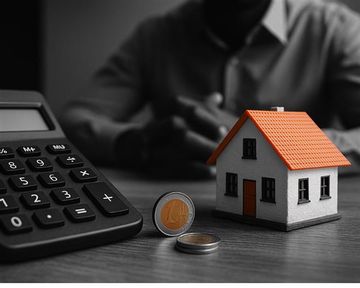Property myths - separating fact from fiction
Whether you're buying your first home in Windhoek or selling an investment property along the coast, there's no shortage of property myths doing the rounds in Namibia. Many of these ideas have stuck over time, often treated as unquestionable truths.
This is according to local real estate professionals who warn that myths and misinformation can trip up both buyers and sellers, sometimes resulting in costly mistakes or missed opportunities.
From believing you need a huge deposit to thinking that only certain times of year are good for buying or selling, property transactions are still clouded by long-standing misconceptions.
Understanding the local property market with clear, factual information is essential if you want to make informed decisions and avoid pitfalls. Let’s unpack some of the most common real estate myths in Namibia:
Myth 1: You can only buy or sell your home in summer
Fact: While spring and summer are traditionally seen as the ‘peak season’ due to better weather and more visual appeal, it’s not the only time to make a successful sale or purchase. Namibia’s relatively mild winters, especially in central and coastal areas, mean that year-round activity is very possible.
Fewer listings in winter may mean less competition and more serious buyers. For sellers, a cosy and well-presented home can stand out even more during quieter months.
More here on the best time to sell your property.
Myth 2: Renovations always boost your property value
Fact: Not all renovations are created equal. While updating kitchens and bathrooms often delivers a return, other changes, like installing expensive fixtures or highly personalised finishes, may not appeal to future buyers and can even work against you.
In Namibia, especially in towns with a smaller buyer pool, it's crucial to avoid over-capitalising. Always research what’s standard for your area and consult a local estate agent before undertaking major upgrades.
Here is how to know if you are about to over-capitalise your home.
Myth 3: You need a large deposit to buy a home
Fact: While a larger deposit can reduce your monthly repayments, it’s not a fixed rule. In Namibia, depending on the bank and your credit profile, you may qualify for a home loan with a lower deposit, and in some cases, even up to 100% financing.
However, it is always better to have some form of a deposit than none at all. Looking for tips on how to save up for a deposit? Here is our guide.
Each bank has different criteria, so shop around and get prequalified before assuming you don’t meet the requirements.
Myth 4: Selling privately will save you money
Fact: Going the For Sale By Owner (FSBO) route might seem like a cost-saving move, but it can end up costing you more in the long run. Without access to a professional network, marketing tools, and legal support, many private sellers struggle to attract qualified buyers or price their properties competitively.
Estate agents in Namibia not only provide valuable market insight, but they also help navigate regulatory requirements like the Deeds Registry process, transfer duties, and compliance with bond registration.
Myth 5: Overpricing and leaving room for negotiation is the best way to go
Fact: Starting too high often results in your property sitting unsold, becoming "stale" in buyers' eyes. Eventually, you may need to drop the price, sometimes below what it would have fetched if priced realistically from the start.
Buyers today are informed and cautious. A well-priced property from day one generates more interest, and in competitive areas like Swakopmund or Windhoek’s suburbs, could even spark multiple offers.
Myth 6: You need to do major renovations before selling
Fact: While improvements can help, a full-scale renovation isn't always necessary. In fact, simple fixes like repainting, cleaning, decluttering, and improving kerb appeal can have a far better return on investment.
Major upgrades should be considered carefully, especially in markets where buyers might prefer to personalise the space themselves.
Myth 7: The property market is the same everywhere
Fact: Namibia’s property market is incredibly diverse. What works in Windhoek’s Kleine Kuppe might not apply in Keetmanshoop or Ongwediva. Coastal towns like Walvis Bay have very different market cycles compared to inland towns.
Local knowledge is key; always speak to an agent who understands your area’s pricing trends, buyer behaviour, and inventory levels.
Myth 8: Always buy the biggest home you can afford
Fact: Bigger isn’t always better. Just because you’re approved for a certain loan amount doesn’t mean you should spend it all. Many Namibians have learned the hard way that taking on too much debt can make monthly living costs overwhelming.
Think about long-term affordability: include future maintenance, municipal rates, levies, and unexpected costs in your budget. Rather, choose a home that suits your lifestyle, not just your loan approval.
Myth 9: Buying is always better than renting
Fact: While property is a great long-term investment, buying isn’t always the best decision for everyone. If you plan to move often, expect career changes, or need more flexibility, renting may make more financial sense, especially in cities with high upfront costs like Windhoek or Swakopmund.
Each situation is unique. Rather than following the crowd, assess your personal financial goals, lifestyle needs, and market conditions.
Property transactions are significant and often life-changing financial decisions. That’s why it’s so important to base your choices on facts, not assumptions, and to work with professionals who understand Namibia’s property landscape.
By doing your homework and partnering with experienced local experts, you can navigate the market with confidence and clarity.

